Precise Diagnostics, Proactive Care: Nerve Conduction Velocity NCV Testing Solutions in Florida
Integrative Care for Concussion / Head Injury Sufferers
in Ft. Lauderdale, Tampa and Orlando, Florida
The Nerve Conduction Velocity (NCV) test is a diagnostic procedure designed to assess the speed at which electrical impulses travel along nerves. This test is an integral component of neurophysiological studies, providing crucial insights into the functioning of the peripheral nervous system. By measuring the velocity of nerve impulses, healthcare professionals can identify abnormalities, localize lesions, and diagnose various neurological conditions. In this article, we will delve into the principles, procedures, and applications of the NCV test, shedding light on its significance in the field of medical diagnostics.
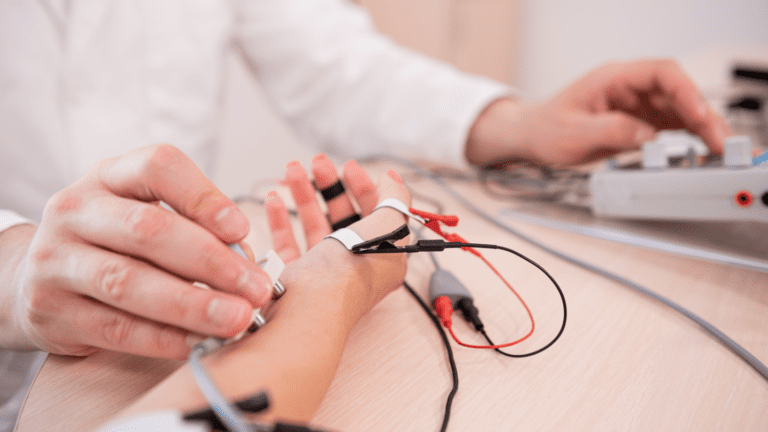
Understanding Nerve Conduction Velocity
Nerve conduction velocity refers to the speed at which electrical signals propagate along a nerve fiber. This velocity is influenced by several factors, including the diameter of the nerve fiber and the degree of myelination (a fatty substance that insulates and speeds up nerve impulses). The NCV test measures the time it takes for an electrical impulse to travel from one point to another along a nerve, providing valuable information about the integrity and health of the nerve.
The NCV Test Procedure
The NCV test involves a series of steps to evaluate the conduction velocity of nerves accurately:
Electrode Placement: Small electrodes are strategically placed on the skin overlying the nerves being tested. These electrodes serve as both stimulators and recorders of electrical impulses.
Stimulation of Nerves: A mild electrical stimulus is applied to the nerve using one set of electrodes, initiating an electrical impulse that travels along the nerve.
Recording Responses: The second set of electrodes records the electrical responses generated by the nerve as the impulse travels. These responses are then analyzed to determine the nerve conduction velocity.
Calculations: The distance between the stimulating and recording electrodes, along with the time it takes for the impulse to travel, allows for the calculation of nerve conduction velocity.
Applications of the NCV Test
The NCV test serves multiple diagnostic purposes, aiding healthcare professionals in:
Identifying Neuropathies: NCV is particularly useful in diagnosing peripheral neuropathies, such as diabetic neuropathy or compression neuropathies like carpal tunnel syndrome. Abnormal conduction velocities may indicate nerve damage or dysfunction.
Localizing Lesions: By assessing nerve conduction at various points along a nerve pathway, the NCV test helps pinpoint the location of nerve lesions. This information is crucial for determining the underlying cause of neurological symptoms.
Assessing Severity: The degree of slowing in nerve conduction velocity can provide insights into the severity of nerve damage. This information assists healthcare providers in developing appropriate treatment plans.
Monitoring Progression: In chronic neurological conditions, the NCV test can be employed to monitor disease progression over time, helping healthcare professionals adjust treatment strategies accordingly.
Who Needs NCV Tests?
Nerve Conduction Velocity (NCV) tests are typically recommended for individuals experiencing symptoms that may suggest dysfunction or damage to the peripheral nerves. Common reasons why someone might need an NCV test include:
Peripheral Neuropathy: Individuals with symptoms such as numbness, tingling, weakness, or pain in the extremities may undergo NCV testing to assess the health of their peripheral nerves.
Carpal Tunnel Syndrome: People experiencing wrist pain, numbness, or weakness, often associated with carpal tunnel syndrome, may undergo NCV testing to evaluate nerve function in the affected area.
Radicular Pain: NCV tests can help diagnose radiculopathy, which is pain radiating along the nerve pathways. This is often associated with conditions like herniated discs or nerve impingements.
Unexplained Weakness or Paralysis: Individuals with unexplained muscle weakness or paralysis may undergo NCV testing to identify potential nerve-related causes.
Chronic Pain Disorders: Patients with chronic pain conditions, such as sciatica or diabetic neuropathy, may benefit from NCV testing to determine the extent of nerve involvement.
Monitoring Chronic Neurological Conditions: For individuals with known neurological conditions, such as peripheral neuropathy or Charcot-Marie-Tooth disease, regular NCV testing may be recommended to monitor disease progression.
How Does NCV Test Can Help TBI Patients?
Traumatic Brain Injury (TBI) can have widespread effects on the nervous system, and in some cases, peripheral nerves may be affected. NCV tests can be valuable for TBI patients in the following ways:
Identification of Nerve Damage: TBI can sometimes lead to nerve damage in peripheral areas of the body. NCV tests can help identify and quantify the extent of nerve damage, aiding in a comprehensive assessment of the patient’s condition.
Diagnosing Secondary Conditions: TBI patients may experience secondary conditions such as peripheral neuropathy due to the injury’s impact on nerve function. NCV tests can assist in diagnosing and understanding these secondary conditions.
Guiding Rehabilitation: TBI rehabilitation often involves addressing various neurological aspects. NCV tests can provide information about the integrity of the peripheral nerves, guiding healthcare providers in tailoring rehabilitation programs to address specific nerve-related issues.
Monitoring Progress: For TBI patients with ongoing neurological symptoms, NCV tests can be used to monitor changes in nerve function over time. This information helps healthcare providers adapt treatment plans and interventions based on the patient’s evolving needs.
In summary, NCV tests are essential for individuals experiencing symptoms indicative of peripheral nerve dysfunction, and they can be particularly useful for TBI patients to assess and address potential nerve-related issues resulting from the injury. These tests contribute to a more comprehensive understanding of the patient’s neurological health and aid in the development of targeted treatment plans.
Florida’s Leading Neurodiagnostic Hub: RADIUS TBI Introduces EMG and NCV Testing
Elevate your neurological care with RADIUS TBI, offering cutting-edge Electromyography EMG Test and NCV services. Experience the future of neurodiagnostic for accurate assessments and tailored treatment strategies.
The Nerve Conduction Velocity test stands as a cornerstone in the diagnostic arsenal for evaluating the peripheral nervous system. Its ability to provide detailed information about the speed of nerve impulses makes it an invaluable tool for healthcare professionals in diagnosing and managing a spectrum of neurological disorders. As technology advances, the NCV test continues to evolve, enhancing its precision and expanding its applications, ultimately contributing to improved patient care and outcomes in the realm of neurology.
Blogs
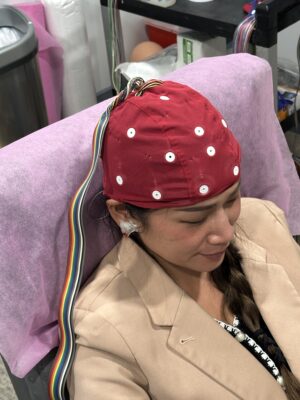
QEEG Brain Map Interpretation
In the world of neuroscience, one of the advanced tools used to understand brain function is the Quantitative Electroencephalogram (QEEG), often referred to as brain mapping. But who interprets these intricate brain maps, and why is their expertise crucial?

Meet Our No.1 Best Neuropsychologist in Tampa, FL Location
At Radius TBI, we pride ourselves on providing exceptional care for individuals suffering from traumatic brain injuries (TBI) and concussions. Our integrated medical team in Tampa, FL, includes some of the most respected and experienced professionals in the field, ensuring

Sleep Disturbance
Did you know? Dealing with a traumatic brain injury (TBI) often means navigating a range of complications, one of the most prevalent being sleep disturbances. Surprisingly, 30-70% of individuals with a TBI experience some form of sleep disruption according to
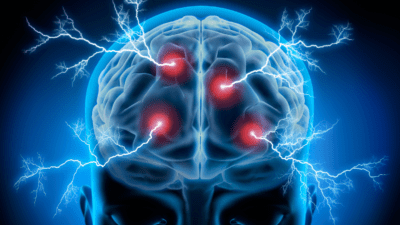
Understanding Routine EEG, QEEG, and Ambulatory EEG Tests
EEG, QEEG, and Ambulatory EEG are distinct forms of electroencephalography, each serving unique purposes in the diagnosis and monitoring of neurological conditions.
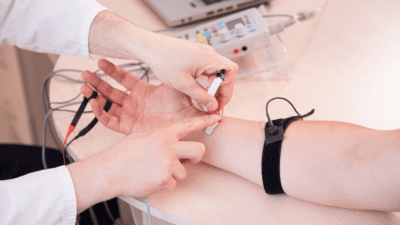
A Deep Dive into Electromyography (EMG Test): Decoding the Language of Muscles and Nerves
Electromyography (EMG) is a diagnostic procedure that plays a crucial role in unraveling the intricacies of the neuromuscular system. By measuring the electrical activity within muscles and the nerves controlling them, EMG provides valuable insights for the diagnosis and management
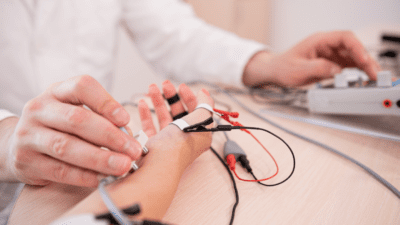
Precise Diagnostics, Proactive Care: Nerve Conduction Velocity NCV Testing Solutions in Florida
The Nerve Conduction Velocity (NCV) test is a diagnostic procedure designed to assess the speed at which electrical impulses travel along nerves. This test is an integral component of neurophysiological studies, providing crucial insights into the functioning of the peripheral

